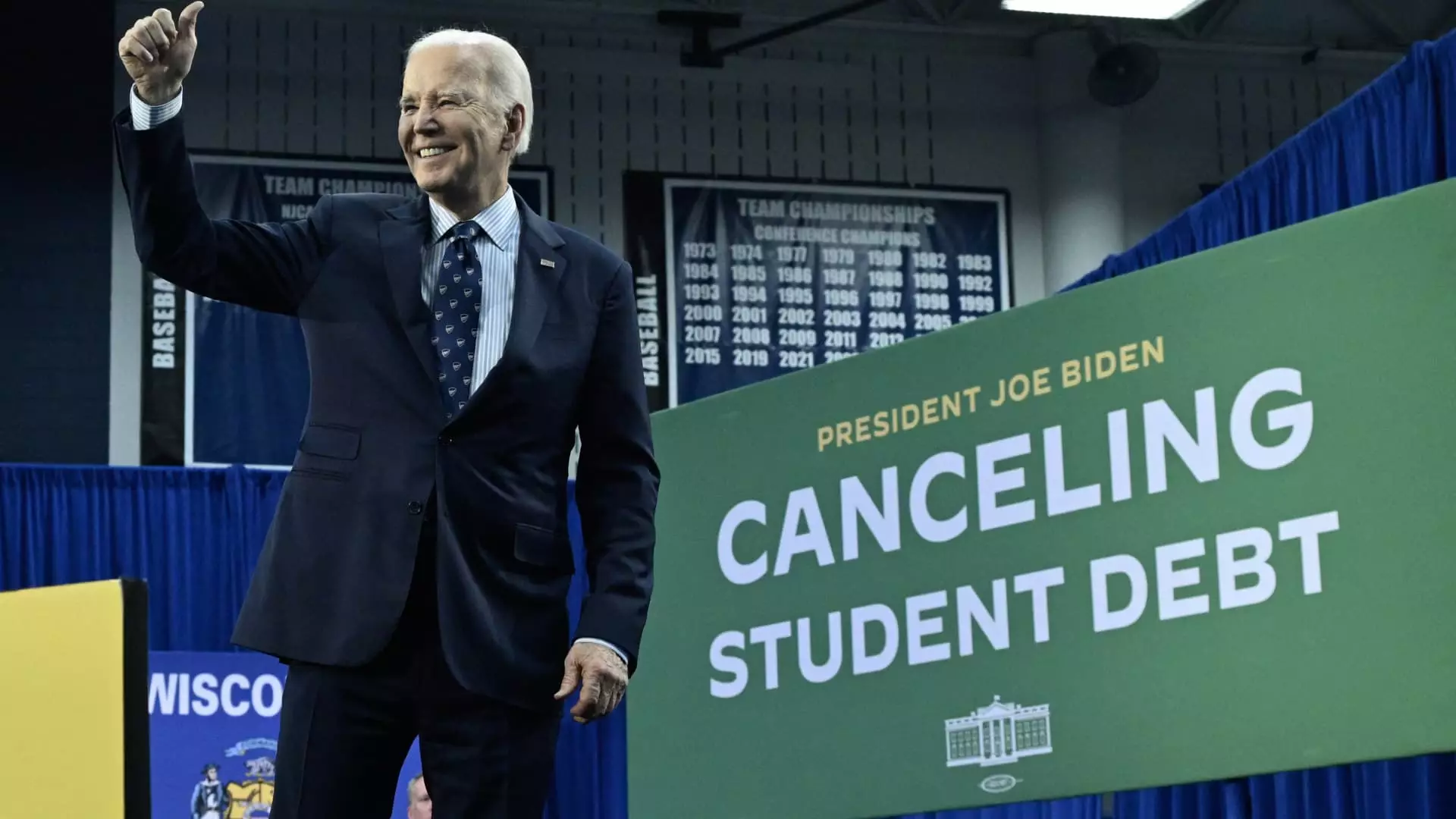President Joe Biden is aiming to implement a student loan forgiveness plan before the upcoming November presidential election. However, the administration is currently sifting through an overwhelming amount of public comments on the proposal, which were published in the Federal Register. With over 34,000 comments already submitted and more expected before the 30-day public comment period ends, it is evident that this issue has sparked significant interest among the American public. According to higher education expert Mark Kantrowitz, the high number of comments indicates the controversial and polarizing nature of the topic, as contentious issues tend to generate increased public engagement.
The public comments on Biden’s Plan B for student loan forgiveness reflect a wide range of perspectives, highlighting the complexity and divisiveness of the issue. One commenter expressed support for the proposal, citing personal struggles with student loan debt and the challenges posed by exorbitant interest rates. This individual emphasized the financial strain caused by inflation and the impossibility of paying off the debt, painting a bleak picture of the situation faced by many borrowers. On the other hand, a dissenting view criticized the plan as unjust, arguing that it places an unfair burden on taxpayers who did not attend college or have already repaid their loans. This commenter questioned the use of taxpayer funds to finance debt cancellation for college graduates, advocating for alternative solutions such as employer-sponsored educational assistance.
Proponents of student loan forgiveness point to potential benefits beyond individual debt relief, such as increased spending power and economic stimulus at the local level. By freeing borrowers from the constraints of student debt, individuals could contribute more to their communities and support small businesses, leading to broader economic growth. Moreover, the positive impact of debt relief on voter sentiment is highlighted, suggesting that political decisions on student loans could influence electoral outcomes. This perspective underscores the interconnectedness of financial, social, and political factors in the debate over student loan forgiveness.
The issue of student loan debt is also viewed through the lens of social justice and historical inequalities, particularly in relation to marginalized communities. An African American commenter emphasized the importance of supporting debt relief proposals as a means of addressing generational disparities and empowering underrepresented groups. Drawing attention to the limited access to wealth and resources faced by African Americans, this perspective links student debt relief to broader efforts to combat systemic inequities and promote economic inclusion. The call for approving debt relief is framed as a step towards rectifying long-standing injustices and empowering members of historically marginalized communities.
Conversely, critics of widespread debt forgiveness emphasize the importance of personal responsibility and individual choices in the context of higher education. One commenter defended their decision to work multiple jobs and pay for their education without external assistance, arguing that college attendance is a personal choice that entails sacrifices and trade-offs. This perspective rejects the idea of shifting the burden of student debt onto taxpayers, framing it as a matter of personal accountability rather than government intervention. The notion of self-reliance and hard work as virtues in education and financial decision-making is central to this viewpoint.
Finally, comments from working-class individuals highlight the struggles faced by many families in navigating the complexities of student loan repayment. From the perspective of blue-collar workers and individuals from low-income backgrounds, the pursuit of higher education has become a daunting challenge rather than a pathway to success. The burden of student loan debt is depicted as a significant obstacle for families, overshadowing other financial obligations such as mortgages and car loans. This narrative underscores the urgent need for solutions that address the specific challenges faced by working-class Americans in managing student debt.
Overall, the public comments on Joe Biden’s student loan forgiveness proposal reflect a range of perspectives and concerns, underscoring the multifaceted nature of the issue. From calls for equity and social justice to arguments about personal responsibility and government intervention, the debate over student debt relief encompasses complex economic, social, and political dimensions. As policymakers navigate these different viewpoints, it is crucial to consider the diverse experiences and needs of borrowers in crafting effective and equitable solutions to the student loan crisis.

Leave a Reply